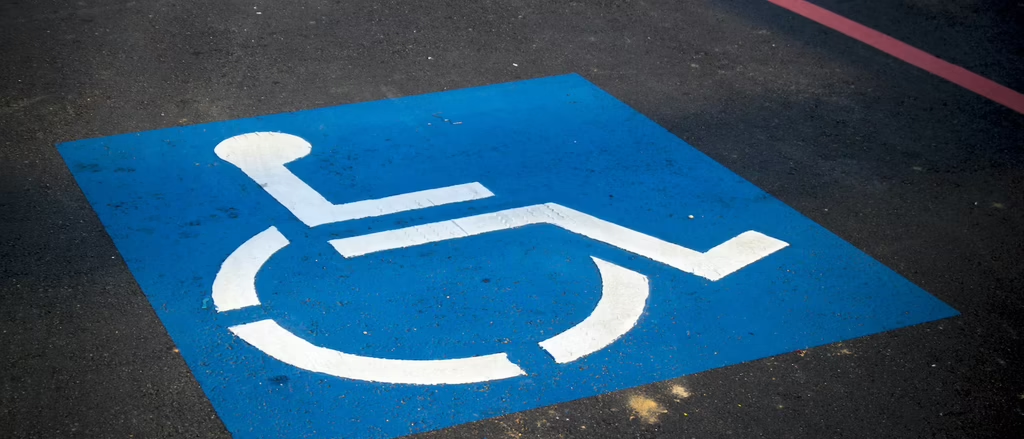
Which Airline is Best for Disabled Passengers?
Monday, June 4, 2012
British Airways vs Easyjet: Which Airline is Best for Disabled Passengers?
Written by Roberto Castiglioni
Traveling by air remains a difficult task for disabled people; we have interviewed British Airways and Easyjet to see which airline is best for disabled passengers.
Every now and then a story of a disabled passenger experiencing problems when traveling by air hits mainstream media. However, cases of poor service, discrimination and degradation are far more common. Most do not get reported because disabled passengers are unaware of their rights or more simply because they want to move past a traumatic experience as soon as possible.
In most cases, problems are related to assistance within the airport terminal building, or while boarding or getting off an aircraft. In the European Union, assistance within the airport and to board or get off an airplane falls under the responsibility of the airport managing company.
Airlines have a limited number of tasks when providing assistance to disabled passengers and passengers with reduced mobility. These tasks are the carriage of guide dogs in the aircraft cabin, the carriage free of charge of mobility devices such as wheelchairs, assistance in moving to the toilet when required, and allocation of seats together to the disabled passenger and his/her companion.
Because of the fewer tasks, it is customary to believe that there is a minimal chance of things going wrong because of an airline; However, this is not always the case.
Reduced Mobility Rights has spoken to British Airways, and Easyjet, the two largest airlines in the United Kingdom, to determine which airline best caters to the needs of the disabled traveling by air.
Both airlines transport guide dogs and mobility devices free of charge; however Easyjet has a weight limit on wheelchairs. Mobility aids weighing more than 60kgs without batteries will only be accepted for travel if both the departure and arrival airports can provide the facilities to load and unload the device.
The transport of guide dogs is subject to compliance with the Pet Travel Scheme from DEFRA for both airlines.
Passengers with disabilities or reduced mobility often travel with a companion who assists them with their needs during the flight, hence the need to be seated together.
"Passengers with reduced mobility can reserve their seats for free anytime from when the booking is made," a spokesperson for British Airways explains. "It is helpful if customers can make British Airways aware of any special needs and how we can help to make the journey as comfortable as possible at least 48 hours in advance, in order that we can provide the best possible customer service."
However, the airline does not guarantee that a traveling companion will be seated next to the disabled passenger unless the latter is severely disabled and cannot be accepted on board without a travel companion.
In 2008, disabled child Tony Hook filed a complaint against British Airways, alleging that on both the outward and return flights from London to Paphos (Cyprus) the airline failed to make reasonable efforts to meet his seating requirements. The case was dismissed by a court of appeal in 2012; The court ruled that EU Regulation 1107/2006, the law protecting the rights of the disabled traveling by air, does not override the Montreal Convention.
"We make every effort to ensure that disabled passengers and their travelling companion are seated together at no additional cost, in seats which are appropriate to their needs and also meet all safety requirements in terms of restricted seating i.e. emergency exits," a spokesperson for easyjet explains.
"Cabin Crew block off the required seats and PRMs are preboarded ahead of our Speedy Boarding passengers," the spokesperson added.
The above applies to all flights with non-allocated seating.
Easyjet is currently testing a pre-allocated seating program. Passengers with reduced mobility and their companions can book their seats free of charge. "PRMs and their travelling companion are pre-allocated suitable seats together at no extra cost," easyjet explains. If disabled passengers are not pre-allocated suitable seats beside their companion, i.e. they declared with less than 48 hours to go before the flights departure, the check-in staff/cabin crew would move passengers on board to accommodate the PRM and companion."
All airlines require the presence of a travel companion when the disabled passenger's condition is severe enough to impede the passenger to reach an emergency exit unaided, retrieve and wear a life jacket, or is unable to independently communicate with the cabin crew or understand safety regulations.
In these cases, some airlines provide discounted air fares for the travelling companion.
"British Airways does not offer discounted air fares to travelling companions at this time," the spokesperson for BA says.
"Companions are provided with the same fare as the disabled passenger they travel with; if the companion books later we would override the fare to match the disabled passenger's fare," easyjet explains. "All disabled passengers and companions are given our online fares even when booking via Customer Services as we understand they may have queries as to the services provided on board and at the airport."
The budget airline offers another valuable service to passengers with disabilities. "We allow disabled passengers to book for a companion without providing a name at the time of booking. They can then change the name free of charge prior to the flight (this must be done via Customer Services/Special Assistance Support). This is to accommodate disabled passengers who have carers/companions on rotation and may not know who it will be at the time of booking."
Source: ReducedMobility.eu
Like what you've been reading? Check out our blog for the latest stories or follow us on Facebook,Twitter or Instagram.



Did you like this content ?
Thanks you made our day!
Therapy is expensive - help us be better!
Well received, thanks!